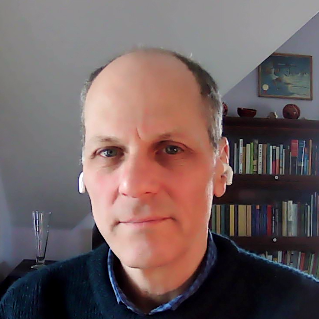
Noun Meanings in a World of Events and States
April 28, 2021
Join Zoom Meeting
Starts at 18:00 (Moscow time)
Roger Schwarzschild
Professor of Linguistics
Massachusetts Institute of Technology
Abstract
Under a neo-Davidsonian semantics for (i) astronaut is a predicate of states.
(i) The American guest is an astronaut.
astronaut describes a state that the American guest is in. If that is so, then maybe in (ii),
(ii) The astronaut is American.
the same noun astronaut is a predicate of states and the subject refers to a state. Likewise, if in (ii) above, American describes a state that the astronaut is in, then the phrase the American astronaut ought to contain two state describing predicates.
In this talk, I’ll sketch ways of combining meanings in a pure event semantics where all nouns, verbs and adjectives are 1-place predicates of events or states. This exercise is interesting in its own right but it also provides a new way to understand various phenomena in noun semantics including: the connection between mass nouns and plurals, the kinds of markers languages have for count and mass, how counting and quantification work in general, aspects of the syntax of noun modifiers and the distinction between simple and complex event nominals (‘party’ vs. ‘examination of the students’).
Suggested reading
Chierchia, G. (1998) “Plurality of Mass Nouns and the Notion of ‘Semantic Parameter’,” in Susan Rothstein (ed.) Events and Grammar Kluwer, 53-103. PDF
Section 1-3 of: Maienborn, C. (2011) “Event Semantics,” in Claudia Maienborn, Klaus von Heusinger and Paul Portner (eds.) Semantics: An International Handbook of Natural Language Meaning, Volume 33.1, Berlin: de Gruyter, 802-829. PDF
Chapter 7, sections 1-3 of: Larson, R.K. (2014) On Shell Structure, in Routledge Leading Linguists, New York: Routledge. PDF
Section 5.2 of Larson, R. and S. Cho (2003) “Temporal Adjectives and the Structure of Possessive DPs,” Natural Language Semantics 11.3:217-247. PDF
Handout